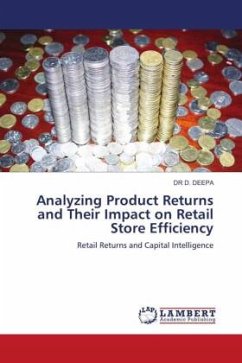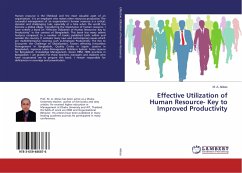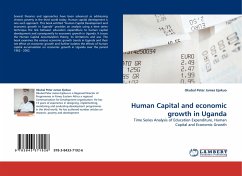
Returns To Human Capital
In Pakistan
Versandkostenfrei!
Versandfertig in 6-10 Tagen
45,99 €
inkl. MwSt.

PAYBACK Punkte
23 °P sammeln!
The literature indicates a positive role of human capital on earnings. This hypothesis is tested along with the role of some other important variables. The methodology adopted in this book is based on the Mincerian model. It also uses spline function to see the impact of the human capital variables on the earnings of regular wage employees. Beside education and experience, literacy index, technical training, and school quality are included in the earning functions estimated for individuals. The book tests the two popular hypothesis about the role of education i.e. productivity hypothesis which...
The literature indicates a positive role of human capital on earnings. This hypothesis is tested along with the role of some other important variables. The methodology adopted in this book is based on the Mincerian model. It also uses spline function to see the impact of the human capital variables on the earnings of regular wage employees. Beside education and experience, literacy index, technical training, and school quality are included in the earning functions estimated for individuals. The book tests the two popular hypothesis about the role of education i.e. productivity hypothesis which states that education provides the skills which increase the workers productivity and the credintialist s hypothesis that education does not improve productivity rather it provides positive signals about productivity of the worker to the potential employer.












